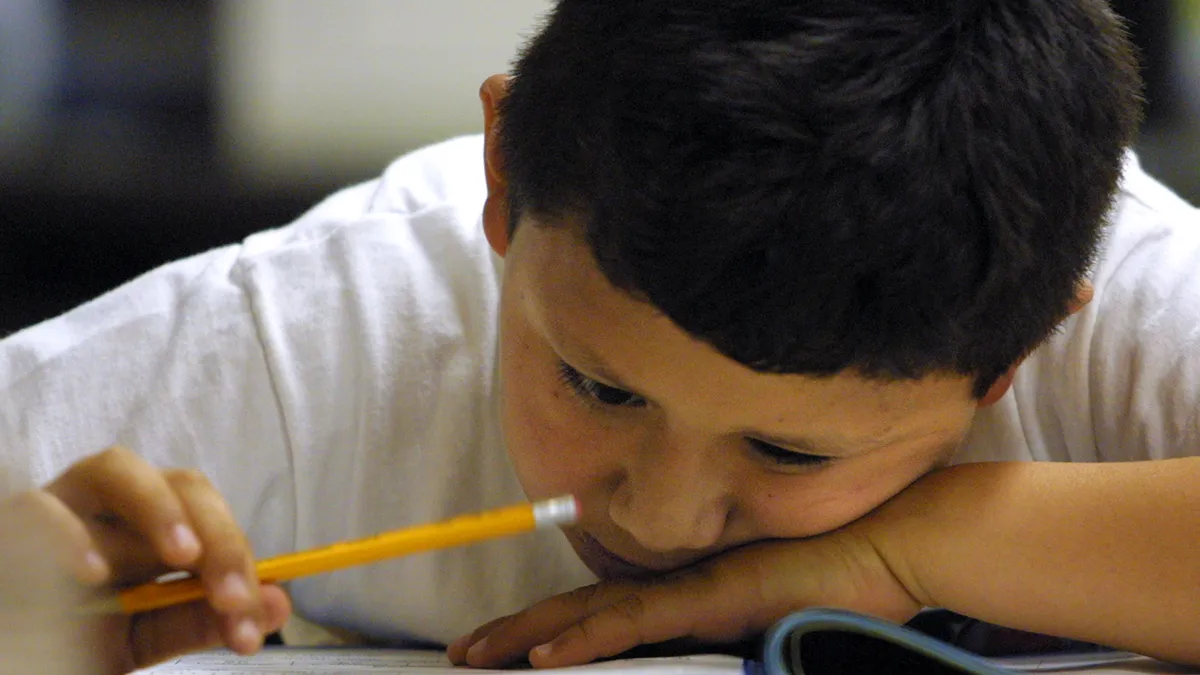Dive Brief:
- Students' self-management skills, such as self-discipline, self-control and self-motivation, are some of the most difficult social and emotional practices to learn but also the most important to develop, according to a report issued jointly Thursday by the American School Counselor Association and ACT, a nonprofit that provides college and career readiness programs and assessments.
- The report drew its conclusions and recommendations from a survey of current and pre-service school counselors, among others. The survey revealed nearly 75% of district directors of counseling programs said building students' social and emotional skills were as important for school success as gaining academic knowledge.
- Given the value of social and emotional skills, particularly as students begin to recover from pandemic-related hardships, the report recommends school districts incorporate SEL initiatives in systemwide plans by aligning goals and strategies for SEL development throughout students' K-12 experience.
Dive Insight:
Ensuring SEL goals are connected to the overall mission of a district is critical, said ACT and ASCA leaders during a virtual news conference Thursday.
"Some of the issues school districts are facing are immense, and if SEL is not intentionally, thoughtfully incorporated into the comprehensive plans for the school alongside curriculum and academic achievement goals, it's not going to get done," said ACT CEO Janet Godwin.
Social and emotional skills such as empathy, problem-solving, social awareness and more are important to cognitive growth and career preparedness, she said.
ASCA Executive Director Jill Cook added, "We also know that students can't learn in a classroom if many of these social and emotional issues are not addressed."
For ASCA, the findings show it's still a priority to reduce the student-to-school counselor ratio. While the association's goal is 1-to-250, the current average is 1-to-424, Cook said.
She added while there are many districts using federal relief funding to hire additional school counselors, rural areas still struggle to find available personnel, and there's an overall need for qualified and certified counselors.
Other findings from the report include:
- Most school counselors spend more than 20% of their time during the school year on students' social and emotional development. Six percent of school counselors said they spent 5% or less time on SEL instruction, while 12% said they spent 75% or more of their time teaching these skills.
- The three most popular methods school counselors used to deliver or reinforce SEL were one-on-one instruction outside the classroom (84%); instruction inside the classroom (82%); and small group instruction outside the classroom (73%).
- Nearly 100% of school counselors said it was moderately to very important to involve parents in developing students' SEL skills, but 78% said it was difficult to do so.
- More than half of school counselors surveyed said they would benefit a great deal from SEL-related professional development, such as identifying strategies for how to embed SEL in the classroom.
- School counselors said they use several resources to guide their SEL work, including ASCA's Mindsets and Behaviors standards, Second Step Curriculum, state frameworks, and CASEL’s framework.







 Dive Awards
Dive Awards





